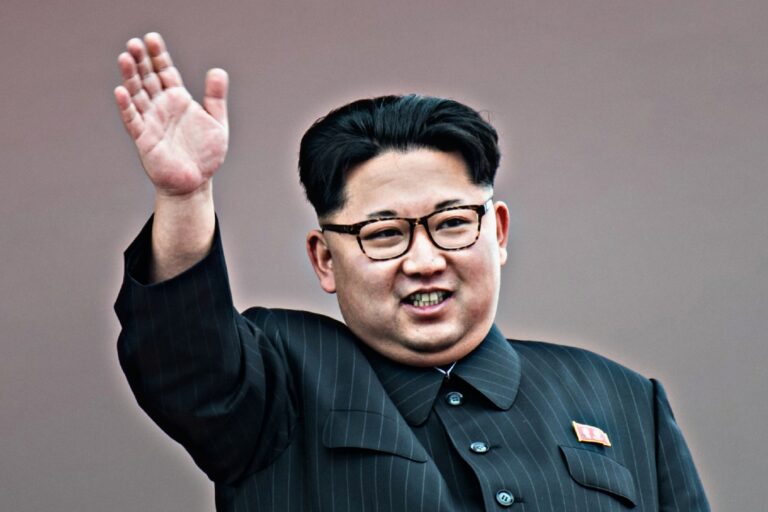Kim Jong Un is the Supreme Leader of North Korea (officially known as the Democratic People’s Republic of Korea, or DPRK).

Early Life and Background:
- Full Name: Kim Jong Un (김정은)
- Date of Birth: Officially January 8, 1984 (though there are some discrepancies, with other sources claiming 1983).
- Family: He is the youngest son of Kim Jong Il (the former Supreme Leader of North Korea) and Ko Yong-hui, who was reportedly of Korean-Japanese descent. Kim Jong Un is the grandson of Kim Il Sung, the founder and first leader of North Korea.
- Siblings: Kim Jong Un has several siblings, including his older brother Kim Jong Chol and younger sister Kim Yo Jong, who holds significant political influence within North Korea.
Rise to Power:
- Succession: Kim Jong Un was groomed for leadership after his father, Kim Jong Il, reportedly chose him over his older brothers due to his leadership qualities. His ascent was gradual but decisive, marked by public appearances with his father in his later years.
- Leadership: Kim Jong Un officially assumed leadership following the death of Kim Jong Il in December 2011. He was only in his late twenties when he became the Supreme Leader, which initially raised concerns about his experience.
Political and Military Leadership:
- Titles: Kim holds multiple titles, including Chairman of the Workers’ Party of Korea (WPK), Chairman of the State Affairs Commission, and Supreme Commander of the Armed Forces.
- Policies: Since coming to power, Kim Jong Un has maintained his family’s totalitarian control over North Korea. He has pursued a dual strategy of advancing North Korea’s nuclear weapons program while making occasional diplomatic overtures to the international community.
- Nuclear Development: Under Kim Jong Un, North Korea has accelerated its nuclear and ballistic missile programs, conducting several tests despite international sanctions. These actions have led to heightened tensions with countries like the United States, South Korea, and Japan.
Diplomacy:
- International Relations: Kim has attempted to break North Korea’s diplomatic isolation, engaging in high-profile summits with foreign leaders, including U.S. Presidents Donald Trump and South Korean President Moon Jae-in. However, these summits have not resulted in significant changes to the country’s nuclear program.
- China and Russia: Kim Jong Un maintains a complex relationship with China, North Korea’s traditional ally, and Russia. While dependent on China for economic support, there have been periods of tension.
Domestic Policies:
- Economic Reforms: Kim Jong Un has promoted modest economic reforms within the highly controlled North Korean system, allowing limited market activity, but the economy remains under strict state control.
- Human Rights: North Korea under Kim Jong Un continues to face accusations of severe human rights abuses, including political prison camps, restrictions on freedom of speech, and punishment for dissent.
Personality and Leadership Style:
- Public Image: Kim Jong Un presents himself as a strong and decisive leader, often appearing at military parades and overseeing missile launches. However, he has also projected a more open and approachable image compared to his father, including instances of engaging with the international media.
- Purges: Kim Jong Un has solidified his power through high-profile purges, including the execution of his uncle Jang Song Thaek and the assassination of his half-brother Kim Jong Nam in Malaysia in 2017, widely believed to have been ordered by Kim.
Personal Life:
- Spouse: He is married to Ri Sol Ju, a former singer and cheerleader, and they reportedly have children, though details are scarce.
- Health: There have been persistent rumors and speculation about Kim Jong Un’s health, with occasional public absences fueling such reports, though he has reappeared after many of these instances.

Whats Going down i am new to this, I stumbled upon this I’ve discovered It absolutely useful and it has helped me out loads. I’m hoping to contribute & help other users like its helped me. Great job.
Woh I enjoy your content, saved to fav! .
hello!,I like your writing very much! share we communicate more about your article on AOL? I require an expert on this area to solve my problem. Maybe that’s you! Looking forward to see you.
I believe you have remarked some very interesting points, thankyou for the post.
Wow! Thank you! I always needed to write on my site something like that. Can I implement a portion of your post to my blog?
Если нужны тематические площадки, выбирайте базы форумов xrumer https://www.olx.ua/d/uk/obyavlenie/progon-hrumerom-dr-50-po-ahrefs-uvelichu-reyting-domena-IDXnHrG.html, соответствующие вашей нише.
You completed some good points there. I did a search on the matter and found a good number of folks will go along with with your blog.